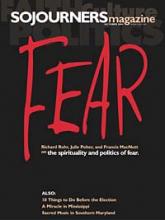On a Sunday morning in late June, five singers stand at the altar of Shiloh Community Methodist Church in southern Maryland, "warming up" the church. They sing a cappella, circling the pews as congregants trickle in and join the singing. When the church is sufficiently warmedin fact, dozens of paper fans, compliments of Thornton Funeral Home, are waving vigorouslythe singers retreat to don their purple and white robes and take their place with Shilohs Sanctuary Unity Choir for the procession that will officially open the service.
Soon powerful voices are filling the worship space, accented by the hit of a tambourine. Hands are raised, some toward heaven, some toward the stained-glass portrait behind the altar that shows Jesus standing next to the River Jordan, his own arms stretched out to Shilohs congregation.
A couple in the second row, Michael and Carrie Kline, add their own voices to the singing. Later theyll come forward for the healing service and prayers of the people. This Sunday, theyve left their recording equipment at home.
The Klines, folklorists, discovered Shiloh two years ago as they traveled the back roads of southern Maryland, searching for people, places, and the stories they contain. They found the African-American sacred music at Shiloh, and elsewhere in southern Maryland, profoundly beautiful and decided to make it the focus of their work as directors of the Southern Maryland Folklife Project.
Read the Full Article
